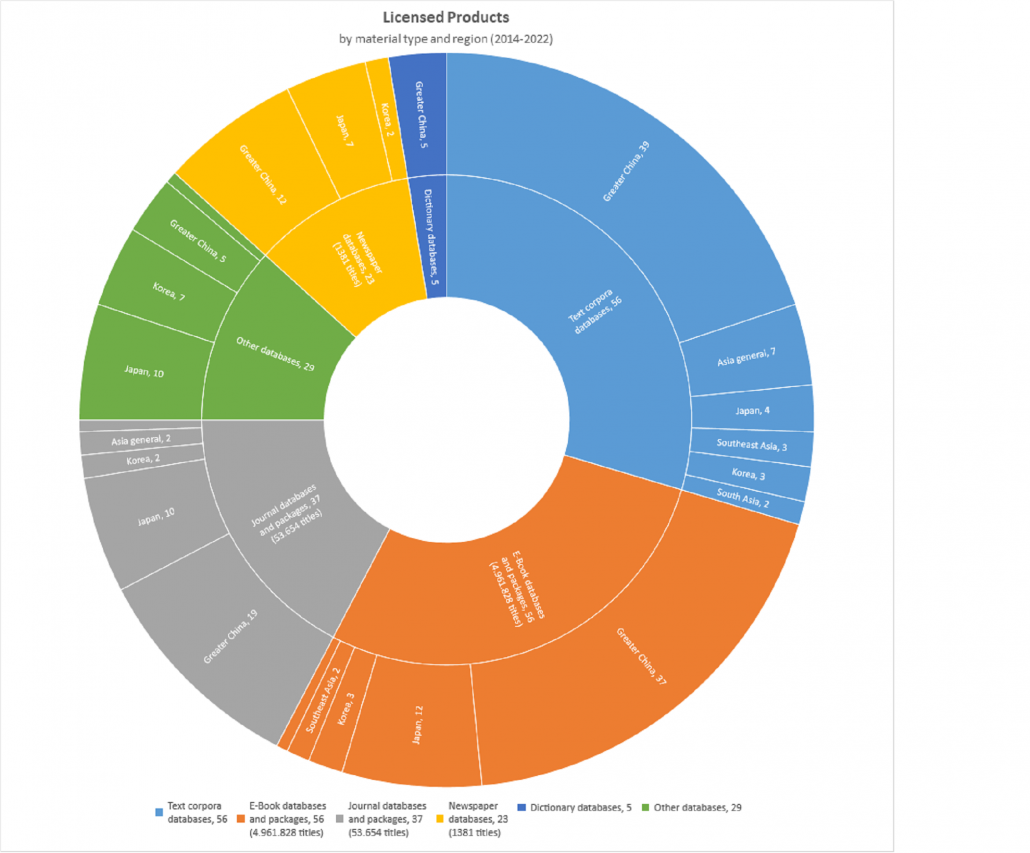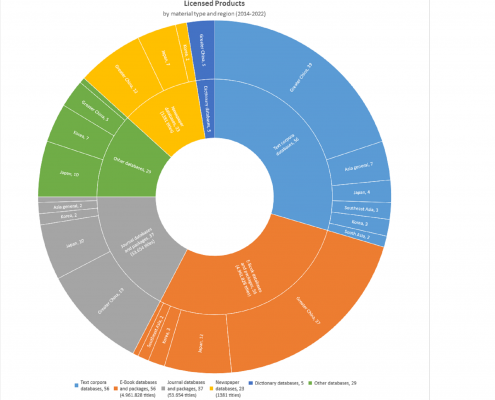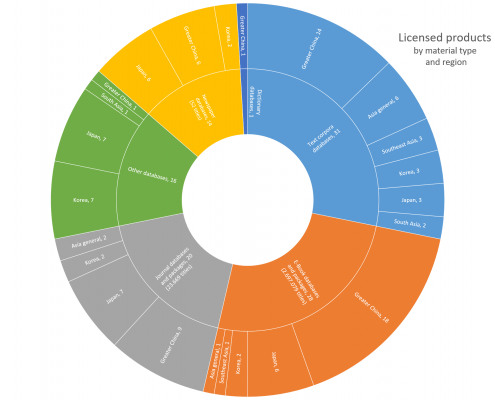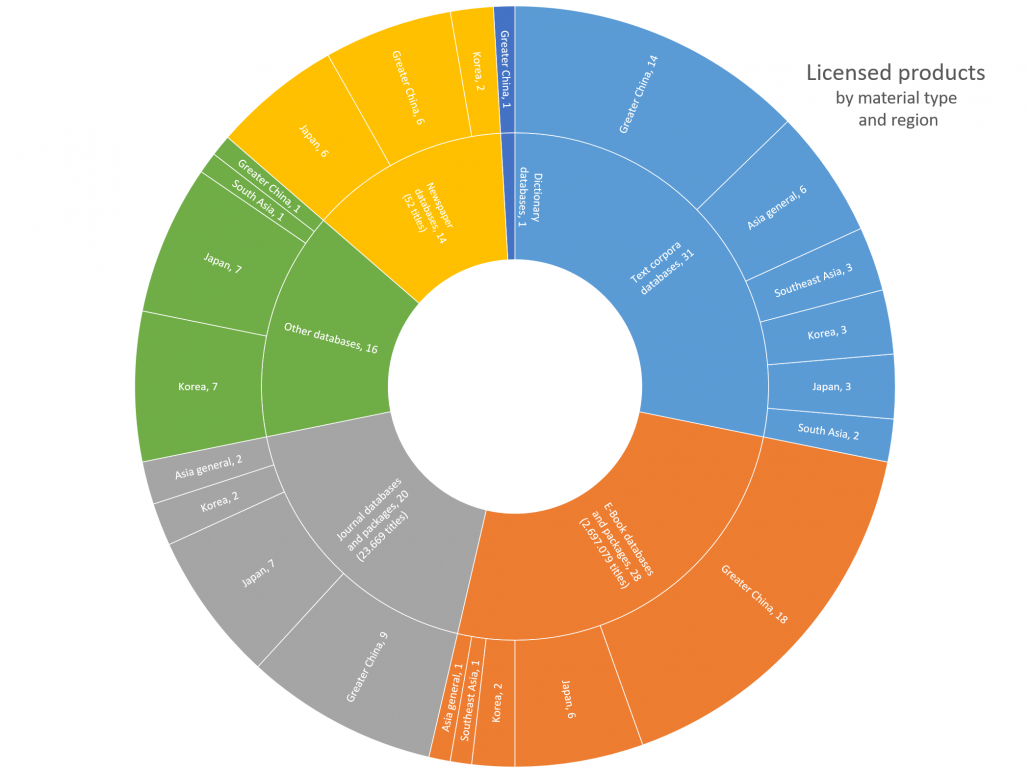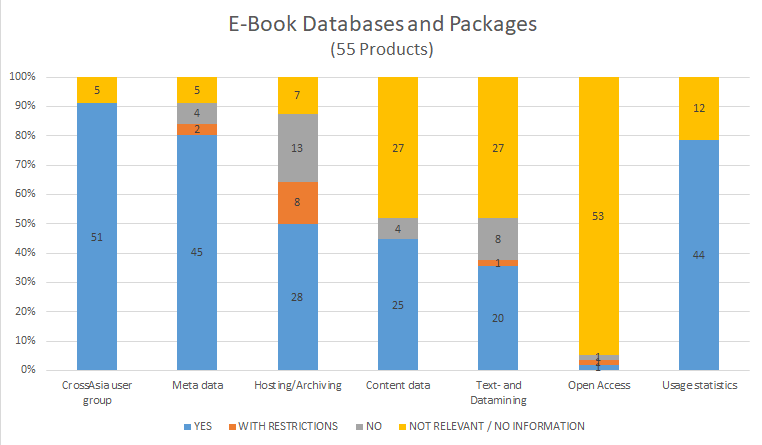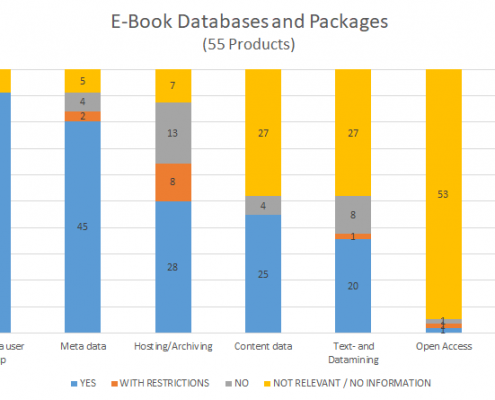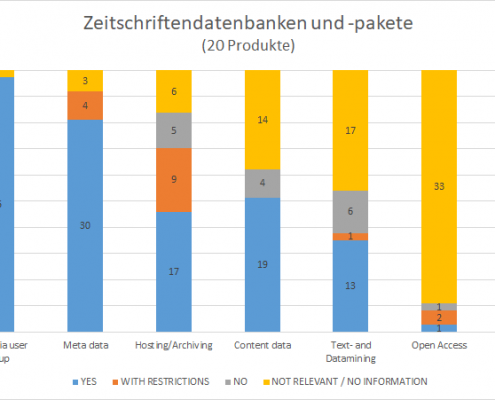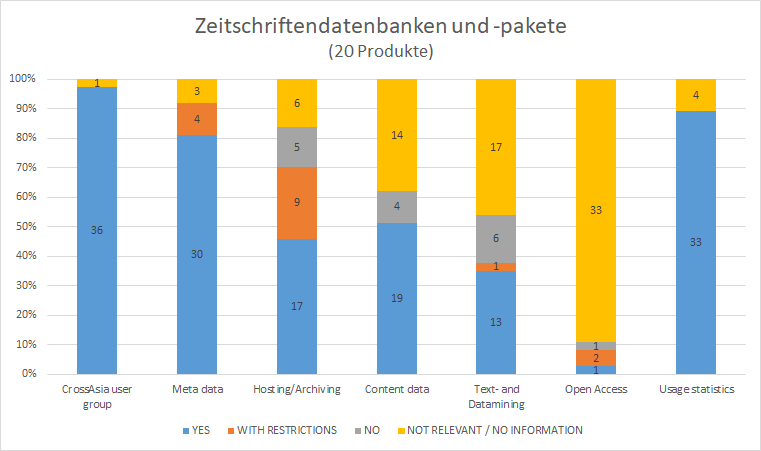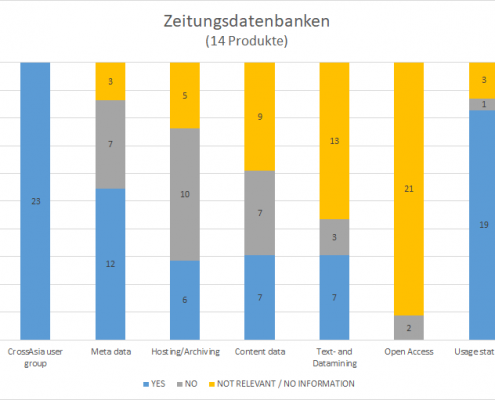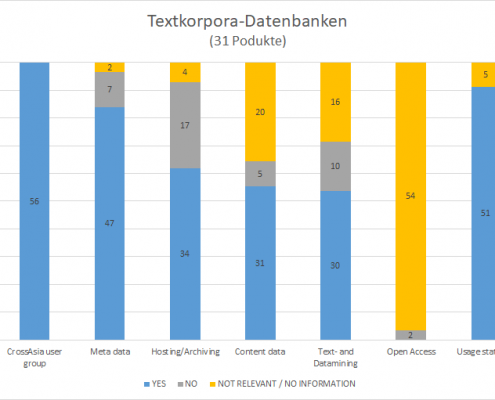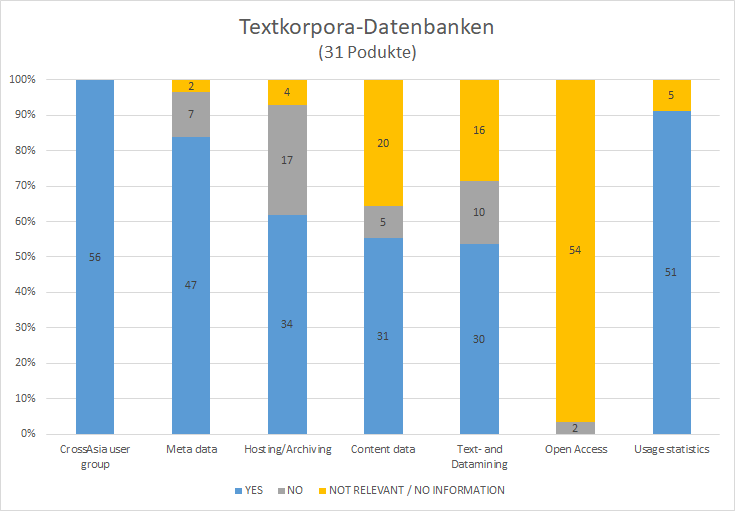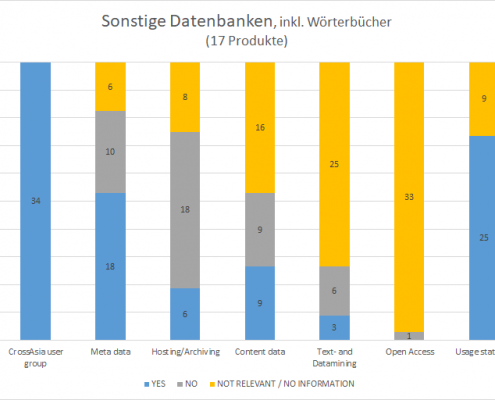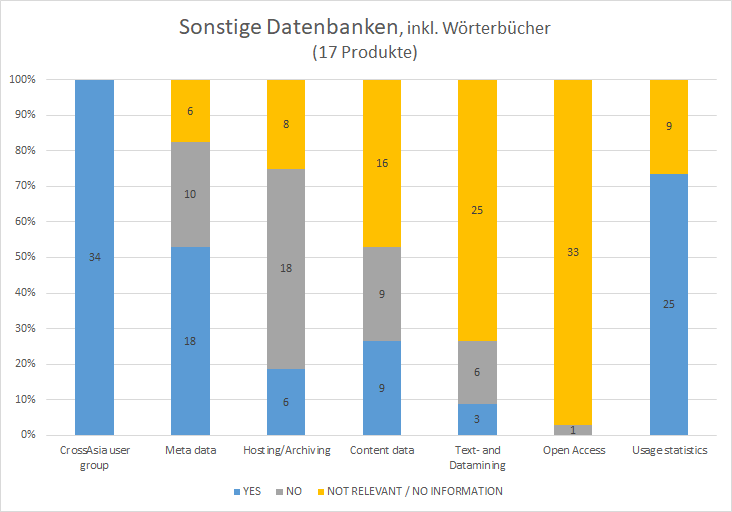LICENSING
CrossAsia and Staatsbibliothek zu Berlin have more than twelve years of hands-on experience in licensing of electronic resources. Today the Library provides nationwide remote access to a wide range of licensed Asia-related databases. From the beginning, licensing had the goal to support the German-based researchers within the scope of the DFG-funded Special Research Collection Programme (SSG) and subsequently the Specialised Information Service Programme (FID). In addition, individual European consortia have already been realised. The goal is to further internationalise CrossAsia’s licensing activities. For this purpose, together with some institutes we founded the European Asia Licensing Initiative (EALI) to improve the exchange of information among us and provide mutual support.
Licensing of the databases is regulated by special agreements with the licensors which allow for supra-regional access for the community of Asian studies researchers in Germany. Since 2012 we use the CrossAsia Standard License Agreement, which is based on the draft of the standard license agreement of the Alliance licenses, funded by the German Research Foundation (DFG). Since 2014, the CrossAsia Standard License Agreement has significantly influenced the standard license agreement of the Competence Centre for Licensing (KFL) in the context of the FID programme.
CROSSASIA LICENSES
In exchange with the Competence Centre for Licensing and in compliance with the DFG principles for acquisition in FID projects, Staatsbibliothek zu Berlin developed internal guidelines for licensing of electronic documents:
- With respect to the licensors our intention is to realise the maximum requirements for the CrossAsia Standard License Agreement. These are hundred-percent compliant with the licensing requirements of the FID programme.
- Changes and adjustments are possible, provided they do not significantly interfere with the character of the standard license. This includes nationwide access, archiving and hosting rights, delivery of metadata and the rights to use them, and rights for data and text mining activities according to the defined authorised user group.
- If it is not possible to achieve the significant character of the license agreement, the resource’s relevance will be re-examined critically and its benefit for the research community will be re-evaluated.
Non-negotiable minimum requirements for licensing of resources are:
- Supra-regional (national) access to licensed resources for authenticated users.
- Metadata and the right to use the metadata (also via APIs).
- Data and text mining rights.
- Archiving and Hosting rights.
The ranking and priority of these four aspects define that a license agreement can be reached if subscription costs are equivalent to those of a single license. By following this paradigm, we guarantee that we fulfil the FID Asia’s service promise without infringing the respective guidelines.
LICENSES & USAGE
Licenses completed between January 2014 and Mai 2020, grouped according to product type and region covered. Product types include the following materials: Licenses completed earlier than 2014 and renewals of those resources are not included. Individual titles are counted for e-book and journal databases and packages as well as newspaper databases. Not included in the number of titles are e-books, journals and newspapers in mixed databases (to be found in the type “other databases”). You can find a list of all licensed digital resources and databases on our website.
Licenses completed between January 2014 and May 2020, grouped according to the internal guidelines for licensing, by material types e-books, journals, newspapers, text corpora, and other databases (incl. dictionaries). The internal guidelines for licensing include:
- Access rights for the CrossAsia user group, i.e. Germany-wide access
- Supply of metadata and the right to use the data
- Rights to host and archive the content
- Delivery of content data
- Rights for text and data mining
- Open Access
- Usage statistics
CONTACT
Please note the information on data processing.

